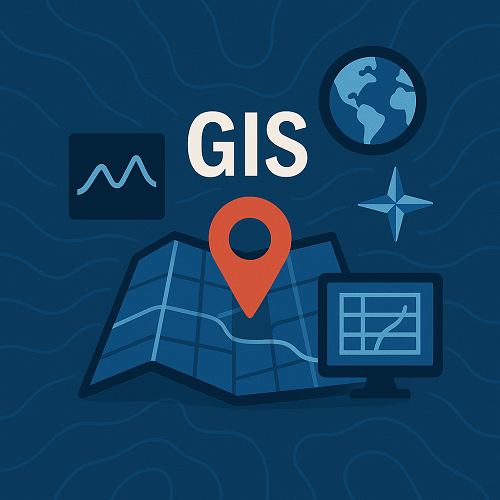GIS Technology is Changing the Future of Business: Discover the Power of Spatial Data Analysis Today!
In the past, businesses relied on paper maps, spreadsheets, and outdated software to make critical decisions. But thanks to the rise of Geographic Information Systems, or GIS, companies now have an unprecedented level of spatial data analysis at their fingertips. This technology is revolutionizing the way businesses operate by allowing them to analyze data in new, insightful ways.
What is GIS Technology?
GIS Technology is the practice of gathering, storing, manipulating, and analyzing geographic data. This technology allows businesses to create sophisticated maps and visualizations that can help them make more informed decisions. GIS is used in a variety of industries, from urban planning and environmental management to emergency response and marketing.
How is GIS Technology Changing the Future of Business?
The impact of GIS technology on businesses is enormous. For example, companies can now analyze spatial data to gain an understanding of where their customers are located. This data can then be used to target specific demographic groups with tailored marketing campaigns or to identify potential new markets. Alternatively, businesses can use this spatial data to prioritize areas for expansion or determine the best locations for new facilities.
GIS technology also helps businesses to optimize their logistics and supply chains. By analyzing data on travel routes, congestion levels, and other factors, businesses can create more efficient and cost-effective delivery networks. Additionally, GIS technology can help companies monitor their assets, track shipments, and ensure products are delivered on time.
The use of GIS technology is not limited to the private sector. The public sector also uses GIS technology to make informed decisions. For example, city planners can use GIS technology to analyze traffic patterns, monitor urban development, and identify areas in need of urban regeneration.
Conclusion
GIS technology is transforming the way businesses operate by giving them access to critical spatial data analysis in real-time. Businesses can now analyze data and make more informed decisions, which has the potential to save them time, money, and resources. The use of GIS technology is not limited to the private sector; it is also transforming the public sector. The future of business is all about adapting to new technologies, and GIS technology is one that businesses cannot afford to ignore.
FAQs:
Q. What exactly is GIS, and how does it work?
A. GIS stands for Geographic Information Systems, which is a technology that allows businesses to gather, store, manipulate, and analyze spatial data. This data is then used to create maps and visualizations that can help businesses make more informed decisions.
Q. What are some of the benefits of using GIS technology for businesses?
A. By using GIS technology, businesses can gain insights into customer demographics, optimize their logistics and supply chains, monitor their assets and deliveries, and more. Ultimately, this leads to more informed decisions and more efficient use of resources.
Q. Is GIS technology difficult to use?
A. GIS technology can be complex, but there are many user-friendly tools available that make it easy for businesses to implement. Additionally, many GIS service providers offer training and support to help businesses get up and running with their technology.
Q. How is GIS technology relevant in the current business landscape?
A. As businesses become increasingly reliant on data, GIS technology is becoming more and more relevant. It provides businesses with critical spatial data analysis that can help them make more informed decisions and stay competitive in a rapidly changing marketplace.
Q. Is it expensive for businesses to implement GIS technology?
A. The cost of implementing GIS technology varies depending on the size and complexity of the business’s needs. However, there are many affordable options available, including scalable cloud-based solutions that make it easy for businesses to start small and grow as they need to.
